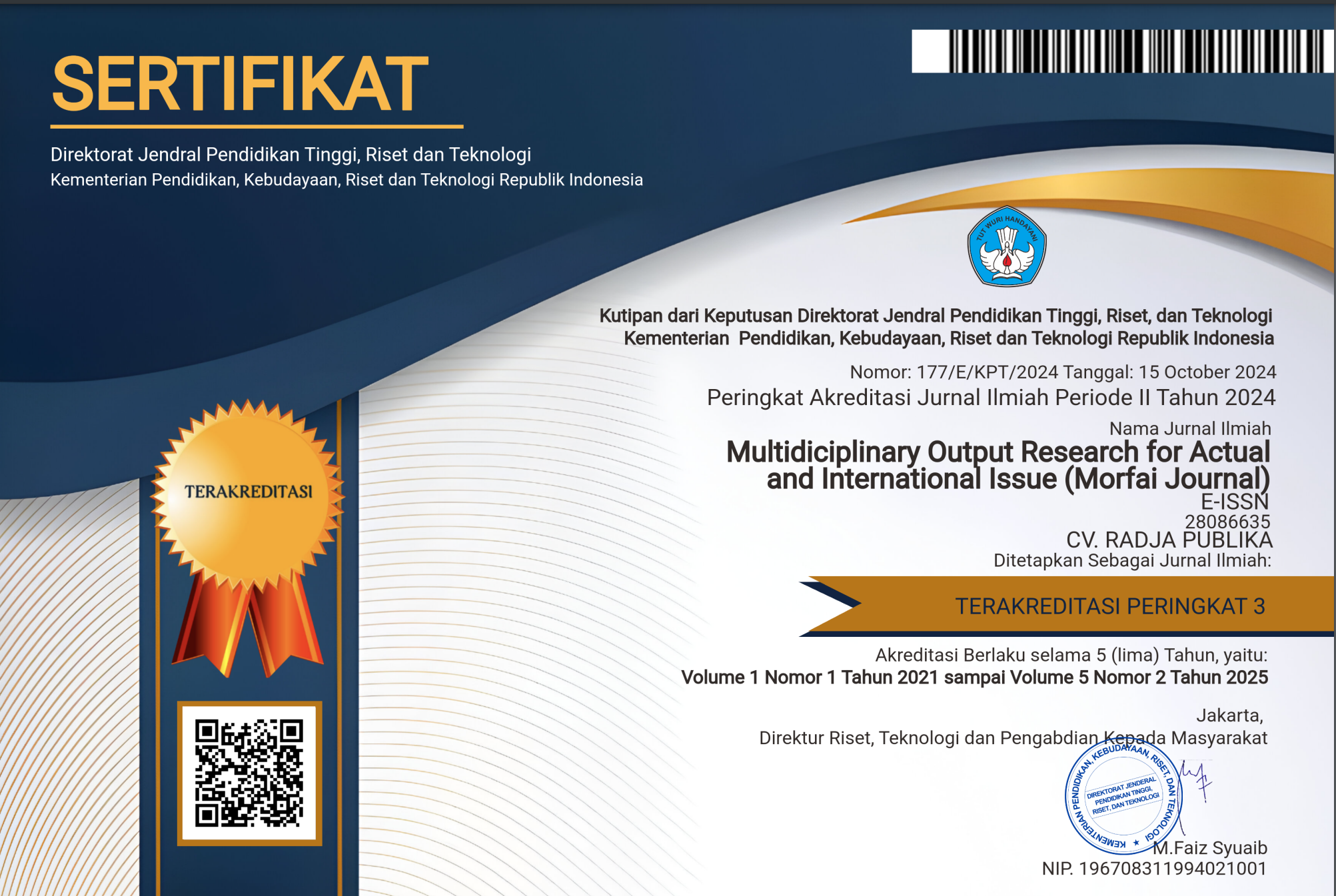THE ROLE OF EMPLOYEE ENGAGEMENT MEDIATION ON THE INFLUENCE OF TALENT MANAGEMENT AND KNOWLEDGE MANAGEMENT ON EMPLOYEE PERFORMANCE
Main Article Content
Cecep Syaifullah Syahputra
Marbawi
Ibrahim Qamarius
Faisal Matriadi
Nur Faliza
Yulius Dharma
This research examines the mediating role of employee engagement on the influence of talent management and knowledge management on employee performance at the BPJS Health Partners Hospital, Langsa City. The sample in this study were employees at the Langsa City Regional Hospital, Cut Meutia Hospital and Cut Nyak Dhien Hospital, Langsa City, Aceh Province, totaling 172 people. Data collected through questionnaires were analyzed using a data analysis method using Structural Equation Modeling (SEM) which was operationalized with the Analysis of Moment Structure (AMOS) tool. The research results show that talent management and knowledge management have a significant effect on employee engagement and employee performance. And employee engagement has a direct effect on employee performance. Then, in testing the indirect effect of employee engagement, it was found to act as a partial mediating variable in the relationship between the influence of talent management and knowledge management on employee performance. It is hoped that the results of this research will be important information for organizational leaders and managers in making policies related to developing employee performance at Langsa City Regional Hospital, Cut Meutia Hospital and Cut Nyak Dhien Hospital, Langsa City, Aceh Province.
Abdorreza, S., & Wan Hooi, L. (2015). The impact of talent management and employee engagement on organisational performance. International Journal of Management Practice, 8(4), 311–336.
Ahmed, T., Khan, M. S., Thitivesa, D., Siraphatthada, Y., & Phumdara, T. (2020). Impact of employees engagement and knowledge sharing on organizational performance: Study of HR challenges in COVID-19 pandemic. Human Systems Management, 39(4), 589–601. https://doi.org/10.3233/HSM-201052
Akbary, M. F., & Rustono, A. (2015). Pengaruh Employee Engagement Terhadap Kinerja Karyawan Dana Pensiun (DAPEN) Telkom Bandung. eProceedings of Management, 2(2).
Akdon, (2011). Strategic Management For Educational Management (Manajemen Strategik untuk Manajemen Pendidikan), Bandung: Alfabeta.
Alavi, & Leidner. (2001). Knowledge Management and Knowledge Management
Alavi, & Leidner. (2001). Knowledge Management and Knowledge Management Systems : Conceptual Foundations and Research Issues By Maryam Alavi Orkand Professor of Information Systems Robert H . Smith School of Business University of Maryland College Park , MD 20742 and Boulevard de. MIS Quarterly, 107–136.
Arifin, A. H., Marbawi, M., Heikal, M., & Afrina, M. (2022). The Influence Of Transformational Leadership Style, Transactional And Job Satisfaction On The Performance Of Teachers Of SMA Negeri 1 Makmur. International Journal of Educational Review, Law And Social Sciences (IJERLAS), 2(4), 489-498.
Atatsi, E. A., Stoffers, J., & Kil, A. (2019). Factors affecting employee performance: a systematic literature review. Journal of Advances in Management Research, 16(3), 329–351. https://doi.org/10.1108/JAMR-06-2018-0052
Aufar, Erda., dan Adman (2016) Pengaruh Knowledge Management terhadap Kompetensi Manajerial Para Pengusaha Industri Kecil Di Kabupaten Cirebon, Manajerial, Vol. 15 No.1 Juni, http://ejournal.upi.edu/index.php/manajerial.
Bakker, A. B., & Bal, P. M. (2010). Weekly work engagement and performance: A study among starting teachers. Journal of Occupational and Organizational Psychology, 83(1), 189–206. https://doi.org/10.1348/096317909X402596
Banuari, N., Absah, Y., & Siahaan, E. (2021). Analyze the Influence of Talent Management and Knowledge Management on Employee Performance through Employee Retention as Intervening Variable at PT Bhanda Ghara Reksa Divre I Medan. International Journal of Research and Review, 8(9), 189–204. https://doi.org/10.52403/ijrr.20210926
Baron, R. M., & Kenny, D. A. (1986). The Moderator-Mediator Variable Distinction in Social Psychological Research. Conceptual, Strategic, and Statistical Considerations. Journal of Personality and Social Psychology, 51(6), 1173–1182. https://doi.org/10.1037/0022-3514.51.6.1173
Sobel, M. E. (1982). Asymptotic Confidence Intervals for Indirect Effects in Structural Equation Models. Sociological Methodology, 13(1982), 290–312. https://doi.org/10.2307/270723
Supatn, N., & Puapradit, T. (2019). Roles of expectancy on employee engagement and job performance. Journal of Administrative and Business Studies JABS, 5(2), 88-98.
Systems : Conceptual Foundations and Research Issues By Maryam Alavi Orkand Professor of Information Systems Robert H . Smith School of Business University of Maryland College Park , MD 20742 and Boulevard de. MIS Quarterly, 107–136.
Torabi, S. A., Giahi, R., & Sahebjamnia, N. (2016). An enhanced risk assessment framework for business continuity management systems. Safety Science, 89, 201–218. https://doi.org/10.1016/j.ssci.2016.06.015
Trost, A. (2014). The Employee Value Proposition. In Management for Professionals: Vol. Part F414 (Issue 1). https://doi.org/10.1007/978-3-642-54557-3_5
Turner, P. (2018). Talent Management and Employee Engagement. Talent Management in Healthcare, 253–283. https://doi.org/10.1007/978-3-319-57888-0_10
Wahyuni, R. A. (2019). Perceived organizational support dan talent management terhadap kinerja karyawan melalui employee engagement. Jurnal Ilmu Manajemen, 7(4), 905-913.
Zaied, A.N.H. (2012). An Integrated Knowledge Management Capabilities Framework for Assessing Organizational Performance. International Journal Information









